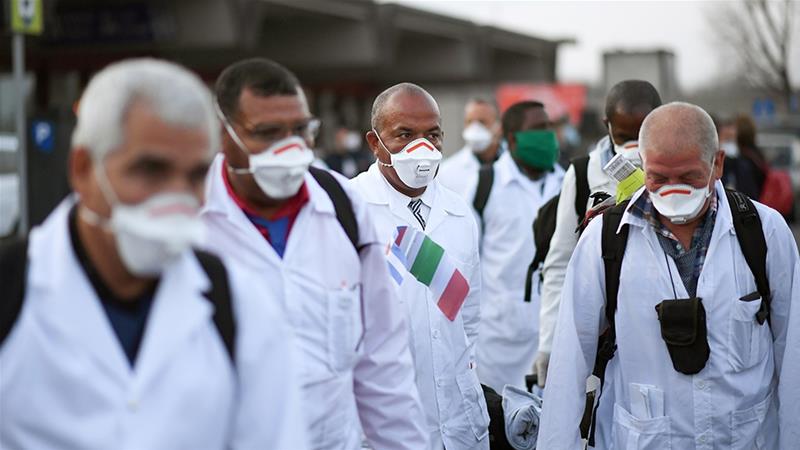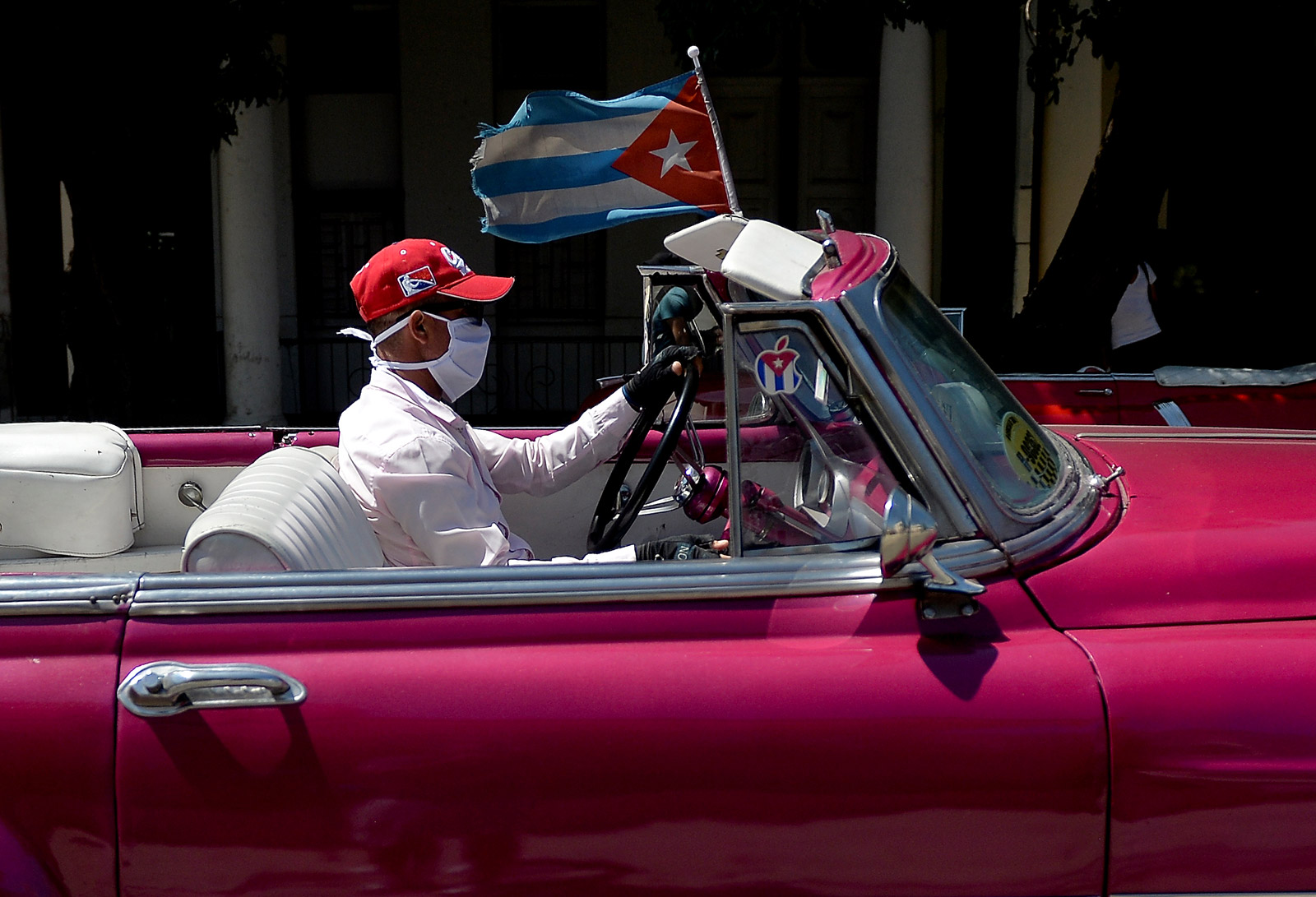Marc Frank, Financial Times, April 5 2020
Cuba has long been proud of sending thousands of its doctors to work around the world as icons of socialist solidarity — and important sources of dollars.
But the coronavirus pandemic has given a communist government with a reputation as a medical power one of its toughest domestic challenges since Fidel Castro seized power six decades ago.
All but bankrupted by US economic sanctions, the Caribbean island nation is grappling with the threat posed to the oldest population in the Americas, where more than 20 per cent are aged over 60.
A severe outbreak of Covid-19 could also potentially threaten the domestic authority of a government whose comprehensive free healthcare system has been a pillar of the revolution’s success.
But the global outbreak has also created diplomatic opportunities, say analysts. The government has stepped up its overseas medical programme, sending doctors and nurses to help fight the virus in the Chinese city of Wuhan, where the pandemic began, as well as Italy, Andorra and elsewhere.
The strategy had long been a soft power play for the island, said Nicholas Watson, Latin America director at the consultancy Teneo, in a note. “[President Miguel] Díaz-Canel is not just looking to restore revenues that the program used to provide but to drive a wedge between the US and Europe over the medical assistance program.”
Cuba has so far reported close to 250 cases of Covid-19, mostly related to foreign visitors, and six deaths — an Italian and a Russian tourist and four Cubans. On March 20 it shut its borders, banned tourism and began implementing measures to curb the virus. This year’s May Day parade has been cancelled for only the third time since the 1959 revolution. Schools, bars and public transport between provinces have been shut down. Restaurants and stores remain open but with new rules on social distancing and hygiene, and all outside gatherings for festive purposes are banned.
Mr Díaz-Canel has appeared daily in the state-run media since the restrictions were rolled out, co-ordinating measures and urging citizens to take the threat seriously. “We have in our favour a public health system for all, a dedicated scientific community and an effective civil defence system, a party and a government that put Cubans at the centre of their attention,” he said in a nationwide address last month as he announced preliminary measures to contain the pandemic. “Serenity, discipline and collaboration, values that every Cuban has incorporated, can prevent the spread of the virus,” he added.
Paul Hare, a former UK ambassador to Cuba who lectures at Boston University’s Pardee School of Global Studies, said the country’s tight social control over its population would also aid the effort. But, he added, “the strains on the Cuban health service will show in equipment and resources”.
While Cuba still boasts the best health statistics in the region, including number of doctors and nurses per capita, many health facilities are in disrepair and there are scattered pharmaceutical shortages.
Cuba initially did little Covid-19 testing but is now conducting more than 500 a day — a fivefold increase since last month — after a donation of kit from China. The government has not said how many ventilators are available. Community-based doctors and nurses, as well as medical students, have been going door to door asking about recent travel, contacts with visitors from abroad and possible symptoms.
Suspected cases are swiftly quarantined in state facilities. Confirmed cases have been hospitalised and their primary contacts quarantined.
The measures appear to have drawn near unanimous support.
“I approve of the measures, though the government should have taken them earlier, especially closing the border like other countries did,” said Anaida González, a retired nurse from central Camagüey province.
The government is, meanwhile, continuing to promote its narrative of global solidarity. As well as sending personnel to virus-stricken nations, state media have broadcast extensive footage of passengers being rescued from the Braemar, a cruise ship that docked in Havana after being refused entry by other Caribbean nations, and images of a Cuban-run hospital in Qatar and nurses marching into hospitals in seven other Caribbean island nations.
Cuba earned $6.3bn from medical services exports in 2018, its biggest source of foreign exchange and twice as much as tourism, its second biggest export earner. It needs the money more than ever given the tourism shutdown.
“Tourism generates $3bn annually in desperately needed hard currency and keeps most of the nascent private sector in business,” said William LeoGrande, a professor and Cuba expert at American University in Washington.
“A prolonged closure will reverberate across the entire economy, producing a recession not quite on the order of the 1990s Special Period [following the collapse of Cuban ally the Soviet Union], but a close second,” he warned.
“The photos of the Cuban medical brigade arriving in Italy are an icon of the revolution’s epic of international solidarity,” said Bert Hoffman, a Latin America expert at the German Institute of Global and Area Studies.
“But this narrative will only function as long as Cuba can control the coronavirus situation on the island itself.”



